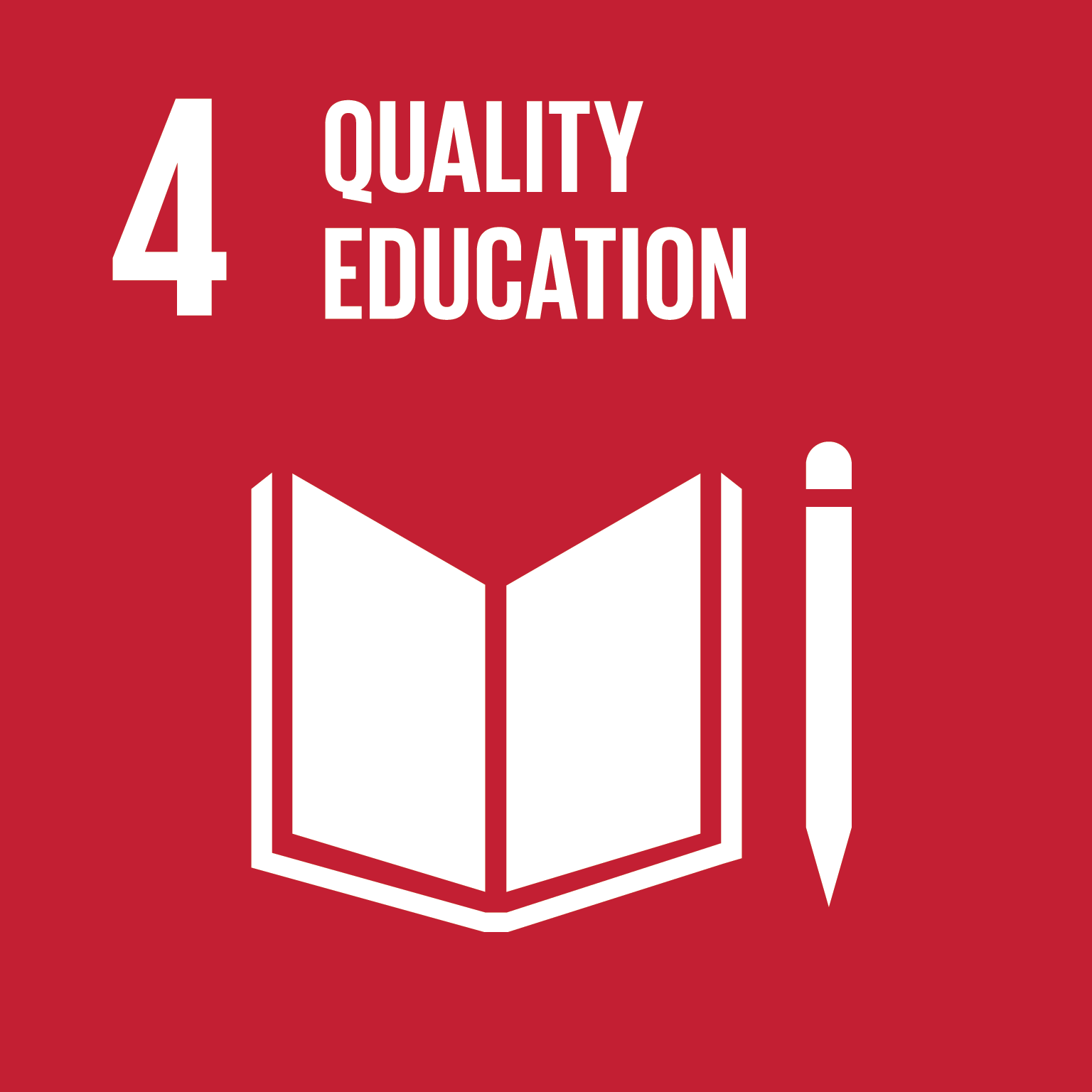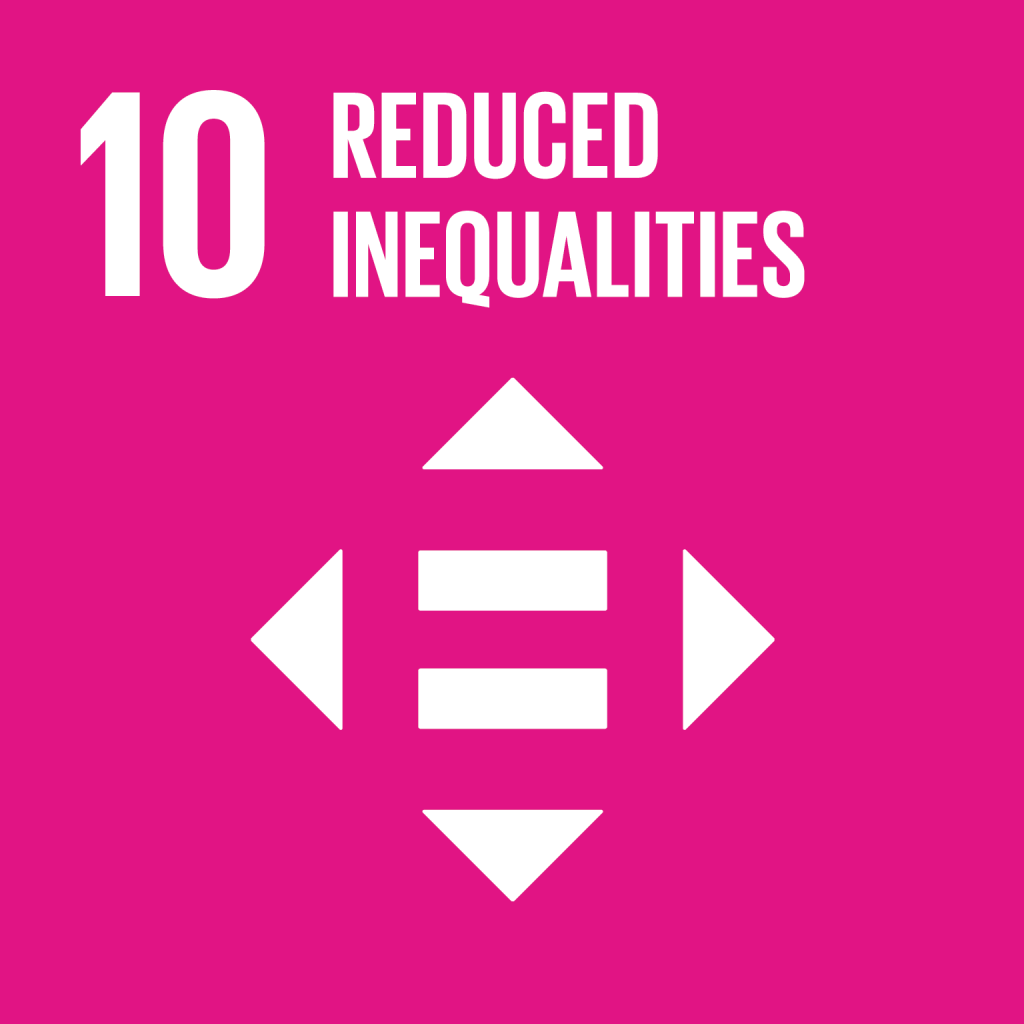-
Who We Are
WHO WE AREThe International Organization for Migration (IOM) is part of the United Nations System as the leading inter-governmental organization promoting since 1951 humane and orderly migration for the benefit of all, with 175 member states and a presence in over 100 countries. IOM has had a presence in Belgium since 1973.
About
About
IOM Global
IOM Global
-
Our Work
Our WorkAs the leading inter-governmental organization promoting since 1951 humane and orderly migration, IOM plays a key role to support the achievement of the 2030 Agenda through different areas of intervention that connect both humanitarian assistance and sustainable development. IOM in Belgium and Luxembourg provides a comprehensive response to the humanitarian needs of migrants, returnees and host communities.
Cross-cutting (Global)
Cross-cutting (Global)
- Data and Resources
- Take Action
- 2030 Agenda

The Displaced Talent for Europe (DT4E) conference took place in Brussels and online on 11 and 12 September 2024. This event brought together over 130 participants in person and 160 online, including EU and international experts, civil society organizations, employers, policymakers, governmental representatives from 18 countries, and displaced talents. This two-day event was the first major gathering in Europe dedicated to putting complementary labour pathways into practice, serving as a pivotal forum for discussing and shaping the future of refugee labour mobility in Europe and beyond.
Various expert panels reflected on themes such as private sector and employer engagement, barriers to sourcing and mobility and the legal frameworks in Europe on refugee labour mobility. Attendees also got to hear first-hand from DT4E alumni about their experiences and journeys to Europe through DT4E. Next to the panels, the DT4E Conference also features interactive workshops, aimed to spark discussion on crucial thematic areas, including sustainable finance; bridging the gap between talent and employment; integration; and healthcare pathways.
Read the press release here and find more resources below.
Meet the panels
Day 1:
- Panel 1: Putting Complementary Labour Pathways to Europe into Practice
-
Reflect on DT4E, discuss outcomes, challenges and solutions, and share best practices and key learnings from Belgium, Ireland, Portugal and UK

- Panel 2: Focus on the private sector
-
Explore building a business case, storytelling for impact, cost-benefit analysis and securing employer commitment.
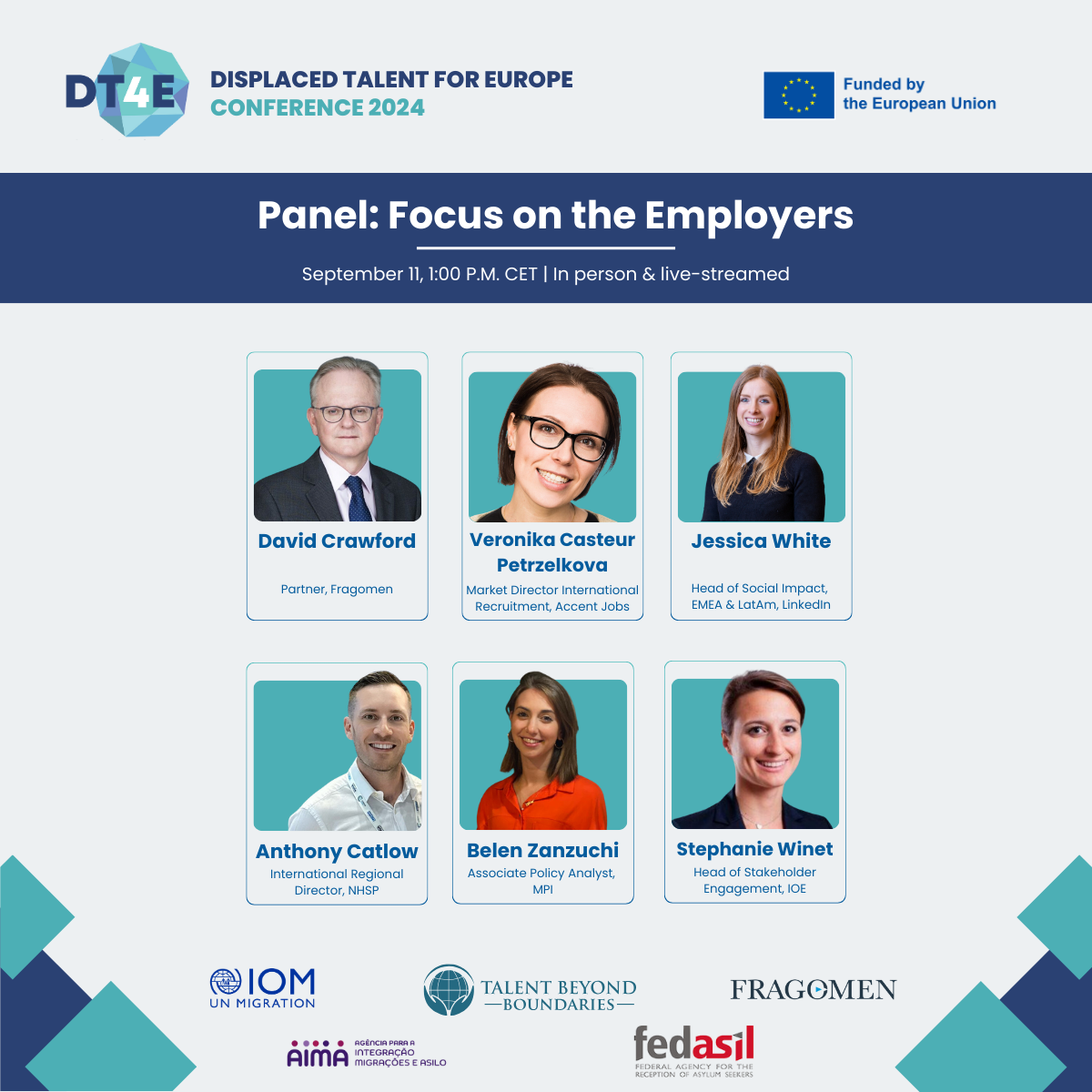
- Panel 3: View from the Source
-
Examine challenges from candidates' perspectives, including pre-departure issues, overcoming exit permits and mobility barriers.

Day 2:
- Panel 1: The legal framework for Displaced Talent Mobility in Europe: Challenges and Perspectives
-
Explore current immigration pathways and solutions in EU Member States and the EU's role in facilitating refugee labour mobility in Europe.
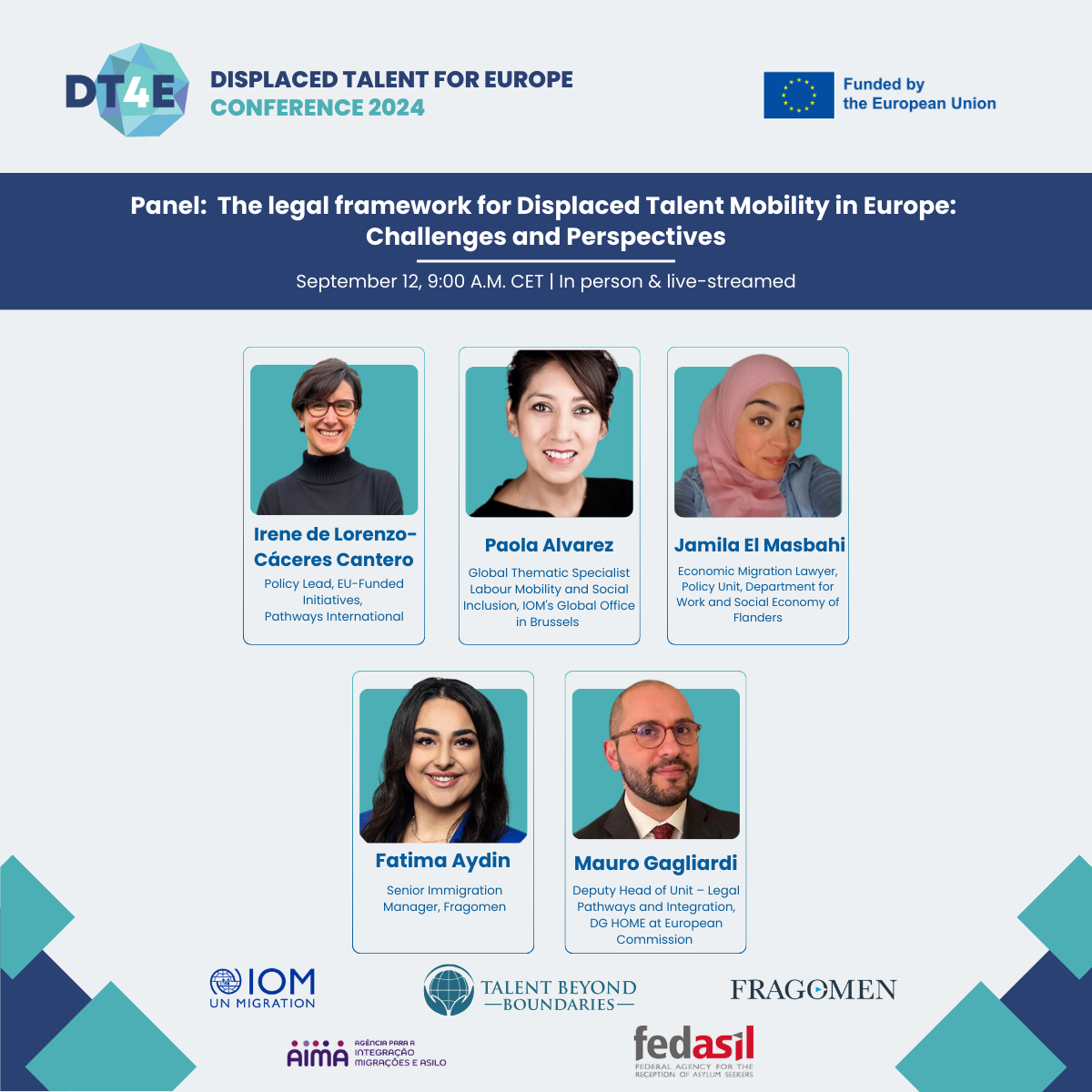
- Parallel workshop sessions 1
-
1. Sustainable Finance
An interactive session aimed at examining and developing innovative financing models for scaling labour mobility pathways, with a focus on co-financing successes and challenges.

2. Bridging the Gap between Talent and Employment
Identify gaps and opportunities in talent and employment, focusing on language and vocational training, the hire-train-move model and diploma and skills recognition.

- Parallel workshop sessions 2
-
1. Integration
An interactive session aimed at discussing effective integration practices and identifying potential gaps, with a view to ensure security, orientation and community belonging for relocating displaced talent.

2. Healthcare Pathways
Analyse healthcare pathways through candidate, employer and stakeholder case studies to understand diverse perspectives and collaborative solutions.
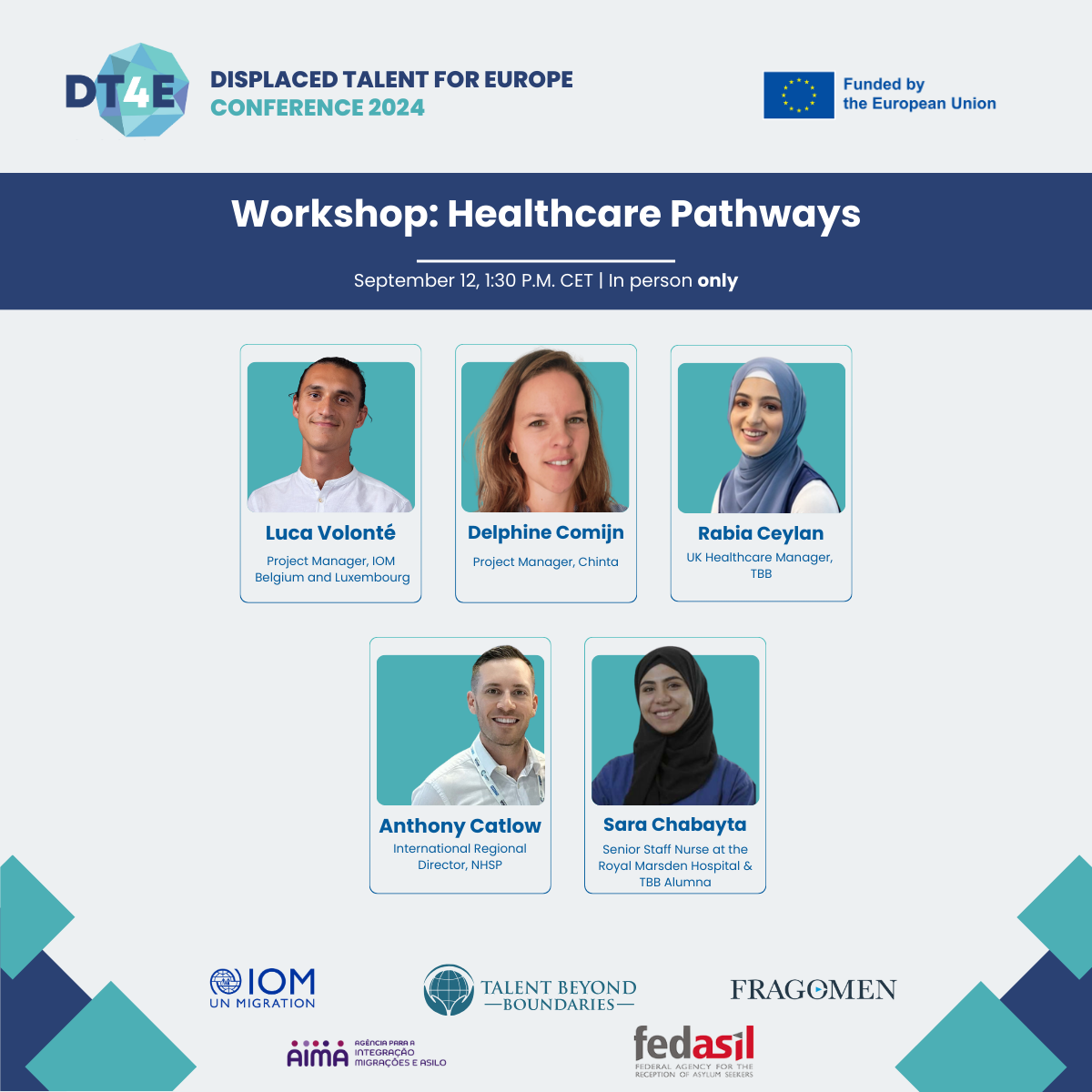
Partners

In support of the Sustainable Development Goals (SDGs)
